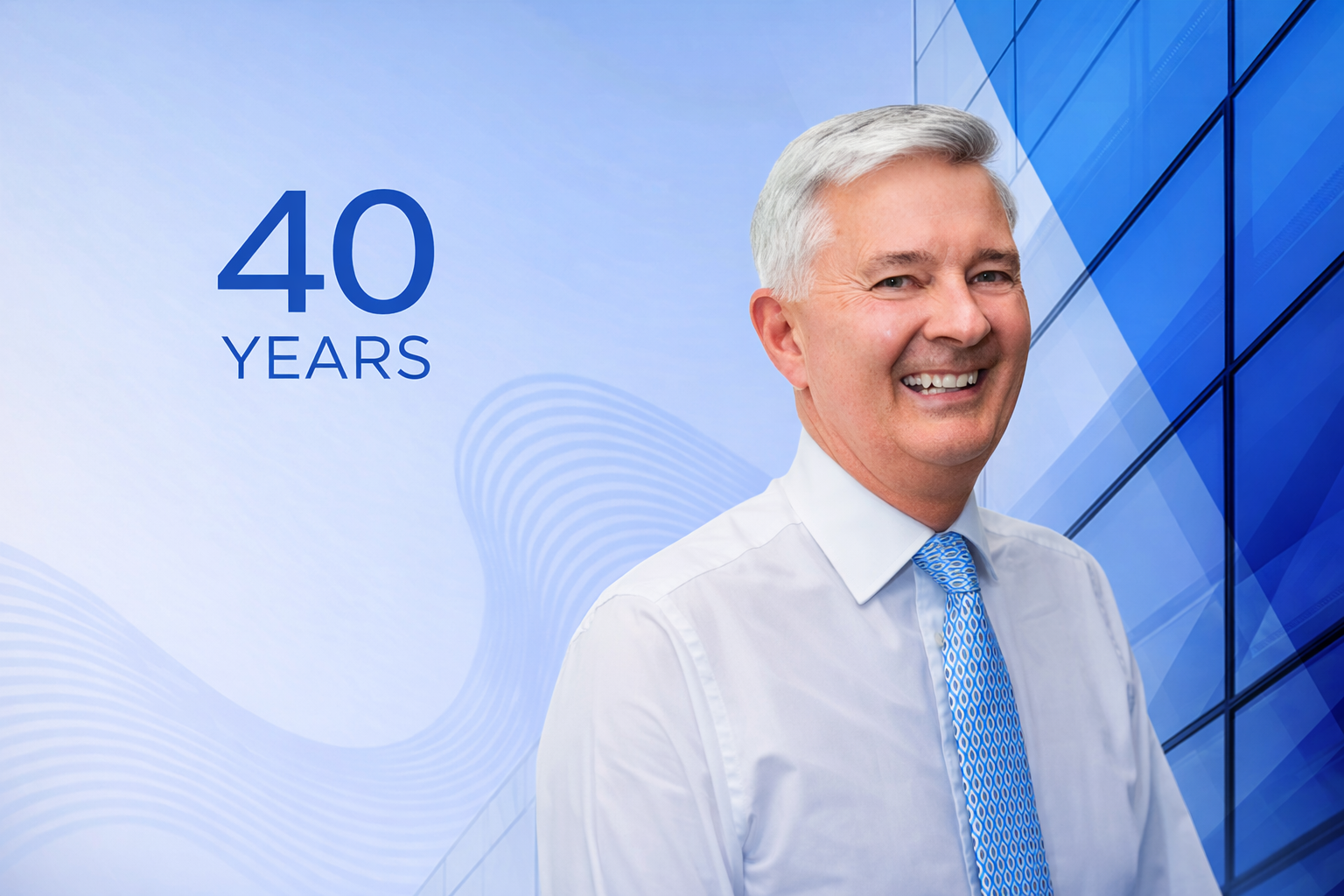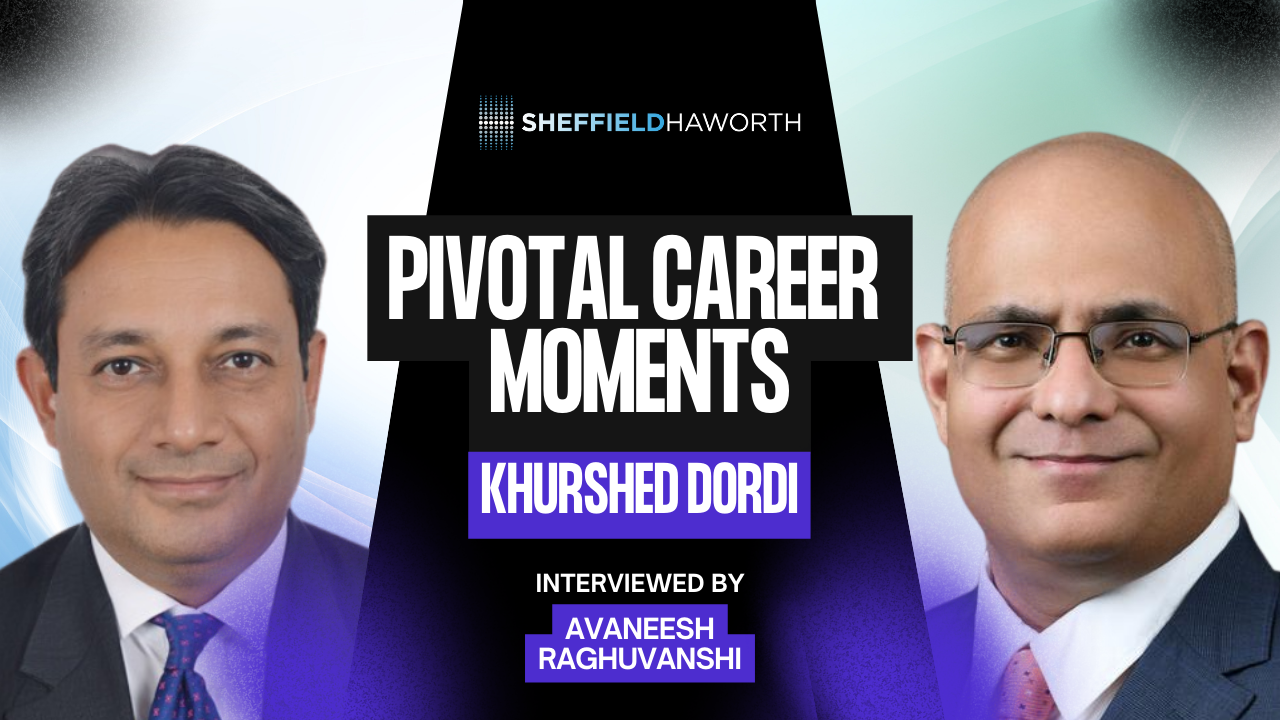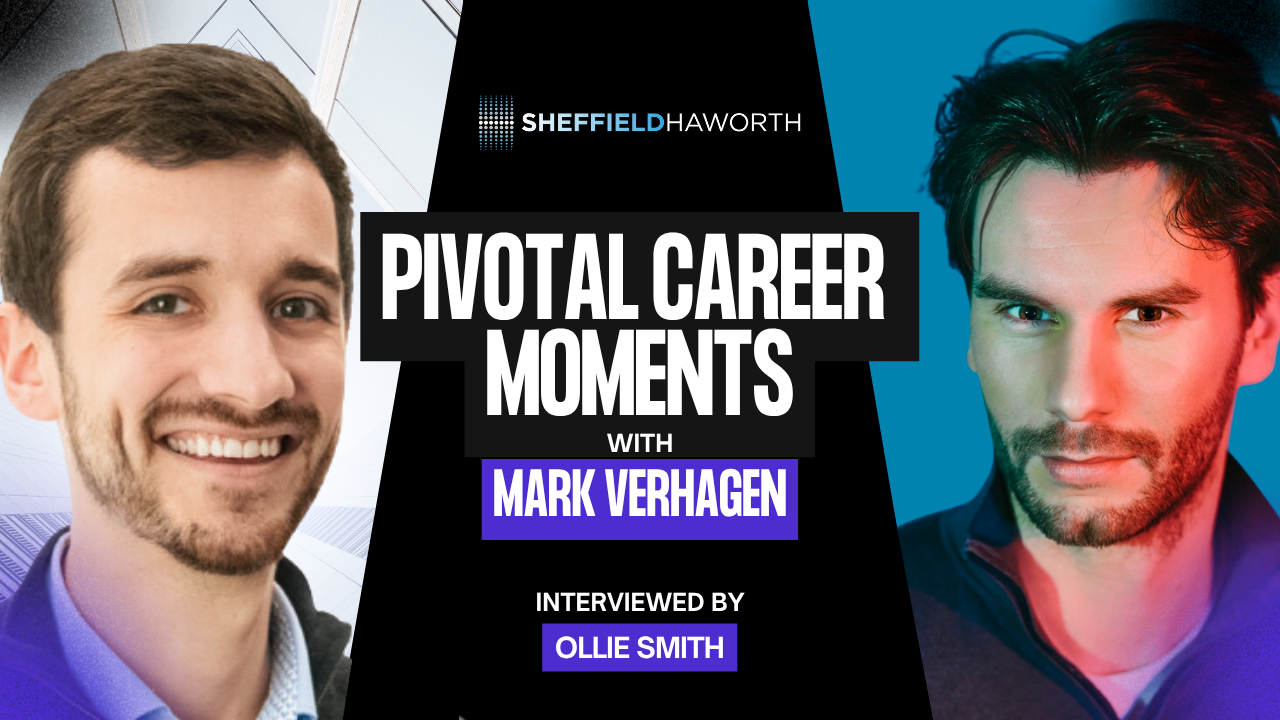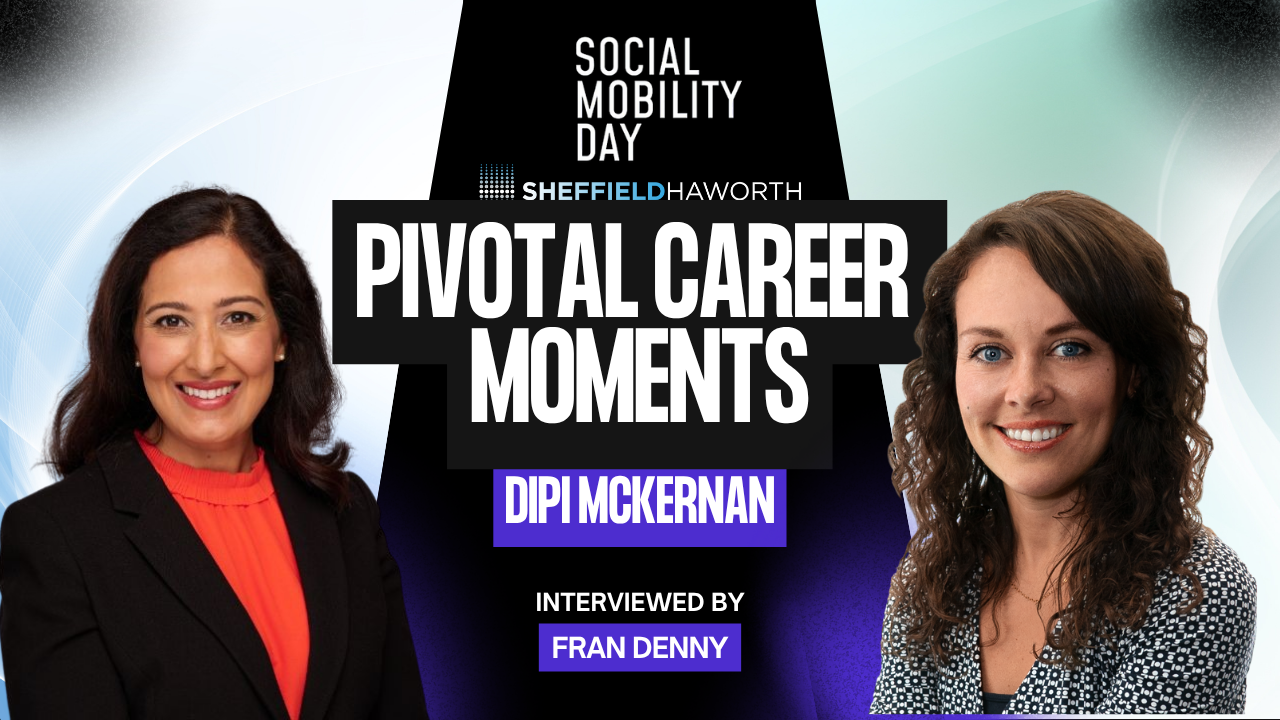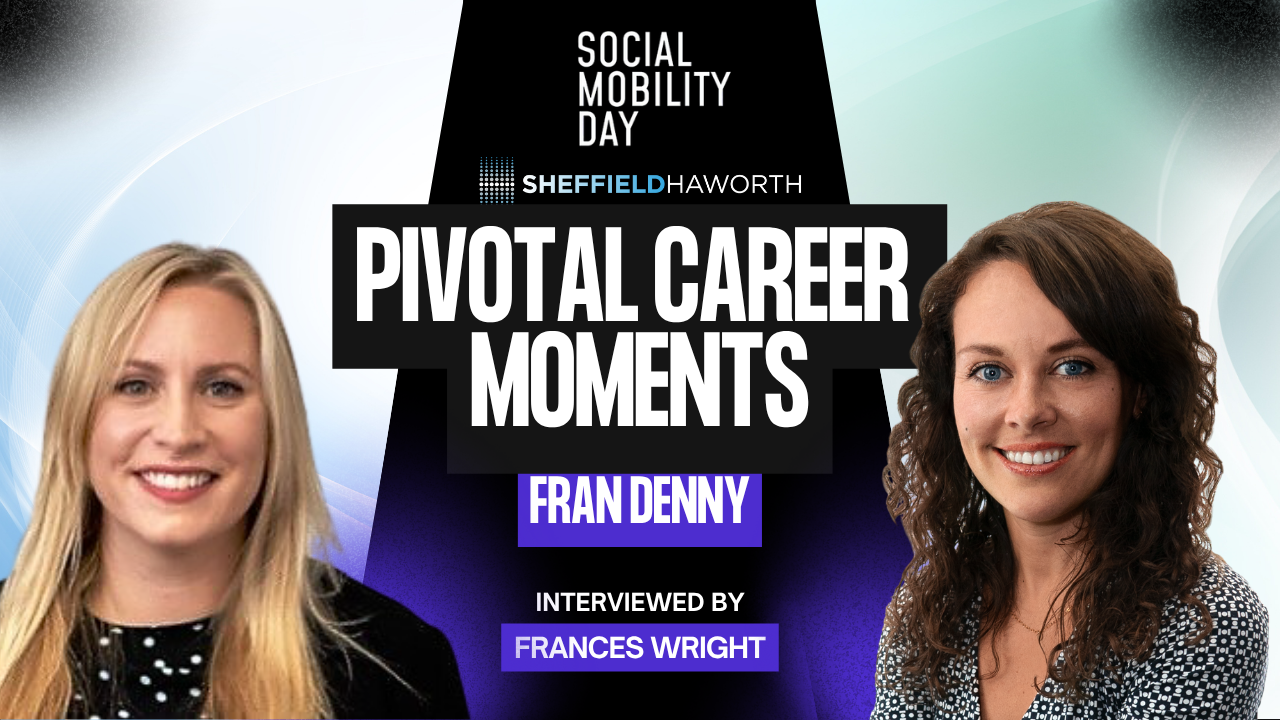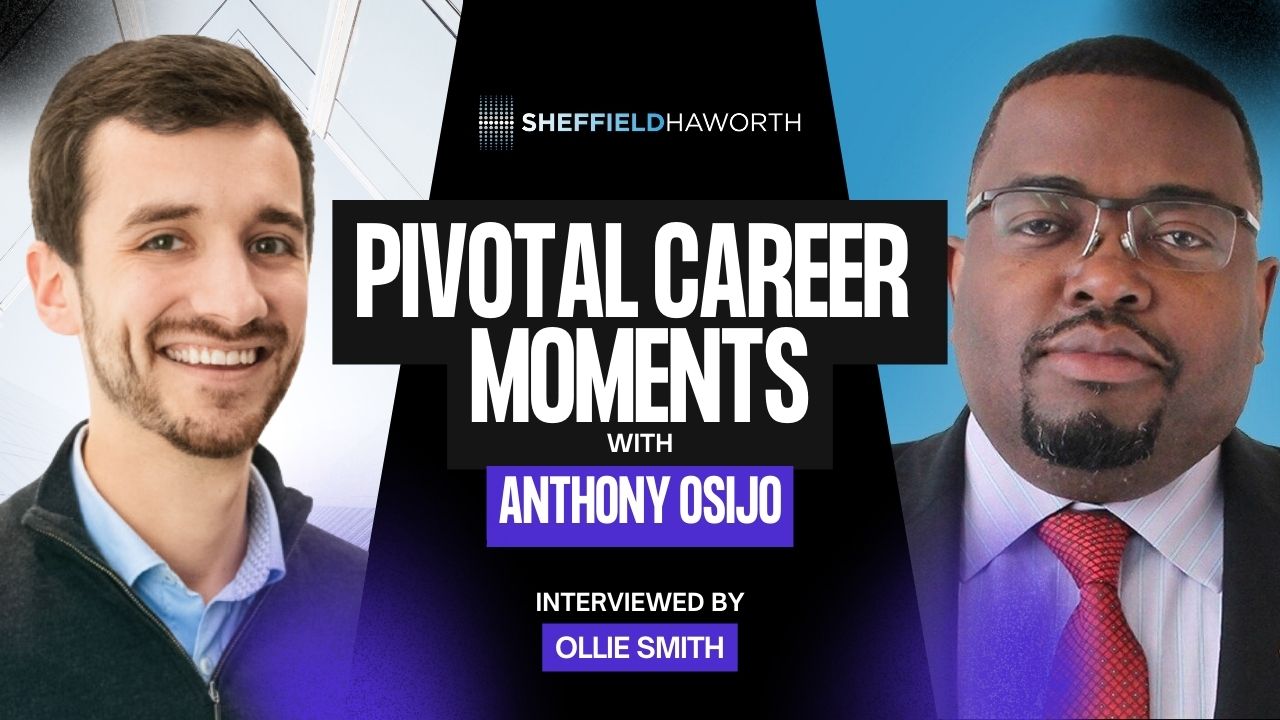Listen to the audio version of this article (generated by AI).
Kin + Carta is a global digital transformation consultancy that helps some of the world’s largest enterprises solve their biggest technology, data, and digital challenges.
David Tuck leads Kin + Carta in Europe, overseeing a team of 850 people across seven countries. He’s also part of the company’s global executive team. The company has been evolving its business model to stay ahead of the digital transformation curve. In 2019, Kin + Carta rebranded to focus on helping businesses create digital experience platforms. In December 2021, it became the first B Corp listed on the London Stock Exchange.
Today, Kin + Carta has over 2,000 employees in seven countries. It has continued to scale through acquisition and strategic partnerships with Microsoft, Google, and AWS. We sat down with David to discuss the growth of the business, his role within it, and the importance of a strong culture.
Q: Kin + Carta has been active on the acquisition trail. What do you look for in the companies you acquire and how do you integrate them?
A: We look for a collaborative client approach, the willingness to solve our client’s biggest challenges together, and a culture that fosters an inclusive environment. We are dedicated to creating opportunities for everyone to excel, unlock their innovation and creativity, ensuring employees have the chance to build meaningful careers. We’re interested in businesses looking for technological change as part of their strategy, whose mission is to get ahead or catch up.
Ours is a business built over many years through acquisition, divestment, and integration, and so we’ve developed a well-defined integration playbook along the way.
Prior to launching the Kin + Carta brand, we were essentially a group of boutiques – portfolio brands, each with deep specialist expertise. Our Kin + Carta brand’s unifying purpose was to build a global platform, acquire new businesses and put them onto it.
In Europe, we also have access to unbelievably strong software engineering talent for our clients. I’ve personally led two acquisitions over the last 18 months in Europe, the first being the Melon group, which encompasses 300-plus software engineers in Bulgaria, North Macedonia, and Kosovo, as well as Frakton in Kosovo.
In May, we expanded our capability in the fast-growing data and AI space, announcing the acquisition of the European part of Forecast Data Solutions and adding 50 data consultants across Scotland and Poland to our business.
I’ve found that establishing a cadence of one-to-one with CEOs and founders at early stages is key to our success. This way, they’re clear about the company they’re joining, its strategy and mission, and everything from our brand promise to the systems they’ll be using.
“I’ve found that establishing a cadence of one-to-one with CEOs and founders at early stages is key to our success.”
By the time we’re going through the acquisition stages and ready to close the deal, we’ve streamlined many of the processes for a smooth integration phase. The CEO and founder meet with me once a week, one to one. And then we’re into a new relationship where they’re now part of the Kin + Carta team. This helps to ensure there’s no misalignment.
Q: What about the branding of those businesses? Do they change from day one, or is there a transition period?
A: It’s very much dependent on individual businesses. We consult with the leadership within each company. For example, Melon has enjoyed a very strong brand in Bulgaria and Macedonia for 20 years, so we wanted to ensure that we transitioned that brand equity in the right way. We’re doing that now together with Frakton in Kosovo because the time is right.
“I trust the leadership team knows the best time to do it because they understand the market and their employees.”
I trust the leadership team knows the best time to transition their brand because they understand the market and their employees.
The European arm of Forecast Data rebranded almost immediately, updating their LinkedIn profiles and introducing themselves as part of Kin + Carta at our joint events with Google and our data and AI events in London.
Q: How have you developed from smaller to higher-value customer contracts in recent years?
A: We’ve built our business from landing contracts of around half a million to eight-figure deals in just over seven years.
Our success is based on a few key things. Firstly we’re laser-focused on our ideal client profile and key verticals in Europe, driving demand by market opportunity and industry. And we’re looking for businesses of a certain size and scale that are ahead of the technological curve.
We have 850 people in Europe alone with technical depth and expertise. And we’ve expanded to servicing clients from southeast Europe. This distributed service model across different markets has enabled us to scale our business. We’ve also hired talented people to complement the existing team, elevating our conversations from the C-suite into the boardroom and becoming a trusted, long-term partner.
“This isn’t just about building great products and digital platforms – the experience has to be brilliant. And people have to talk about it.”
Everyone who works for us is energised around delivering what we’ve termed a “Seven Star Experience”. This isn’t just about building great products and digital platforms – the experience has to be brilliant.
We enjoy achieving a certain level of client intimacy and understanding. This means talking our clients’ language, focusing on their business outcomes, and enabling them to do something better than they could have without us. Delivering a “Seven Star” experience means clients want to work with us on a longer-term, multi-project basis.
Q: In terms of that “Seven Star” strategy, to what extent do you benchmark yourself against other companies in the industry?
A: Client intimacy is what really makes the difference. There’s also a strong correlation between excellent client feedback and our employee feedback. So, rather than only considering our competitors, we review net promoter scores for clients and employees, including metrics across our delivery operation.
Q: How is the current hype around generative AI impacting your discussions with clients?
A: Data and AI are actually our fastest-growing service line today. We’ve been delivering data services for clients within both private and public sectors for some time. We have a team of 110 people in our data practice in Europe alone. The part that tends to grab attention is generative AI. However, data covers everything from building great data foundations to platforms, analytics, and insight, as well as data governance. Everything starts with having really strong data foundations.
“Make sure you’ve got a culture of being adaptive to change as needed.”
Our data specialists have been working in this industry for a very long time and can cut through the hype. There is so much of it too. With 1,000 AI tools released in May alone, AI is driving a significant change in our industry and presumably the vast majority of industries.
But we bring everything we do back to the fundamentals. Our philosophy is to align your technology choices to business and customer outcomes, not the technology itself. To make sure you’ve got a culture of adapting to change as needed.
Because we work so closely with Microsoft and Google, they gave us early access to their generative AI platforms, giving us an added advantage.
Q: Is that how you keep your people ahead of the curve in terms of new technologies coming through?
A: At our heart, we are software engineers. Yes, we’re strategy consultants and designers, but ultimately we’re software engineers. We’re builders. We have innovation labs in all of our different locations, with teams building new products. We keep ahead via a combination of those close technology partnerships and our own people who are working on large projects and updating weekly on the things we build.
Q: What are the current big market challenges for you?
A: There’s no doubt that, like many, we have seen an increase in sales cycles. But in a more risk-averse climate, the trend towards caution is helping us to grow in certain areas. Across all verticals our clients are seeking strong and resilient managed services to keep the lights on in their core technology platforms.
Existing clients are looking to ramp up but for brand new ventures, the sales cycle has increased. With all of these market challenges, we focus on having great consultants in the right places doing the right work for our clients.
Q: What are the benefits of B Corp status for you as a business, and what’s the culture within the business?
A: The biggest thing for us being a B Corp is attracting the right talent. Many people coming into the workplace now want to join a business that stands for something.
Whenever we talk to new people about why they joined us, two things come up regularly: our B Corp certification and what that stands for; and having a very clear diversity and inclusion strategy. We’ve been very vocal about ensuring our teams represent the communities they’re part of. Together with data, AI, and sustainability, these are key topics being discussed in boardrooms today.
Clients want to understand how we balance people, profit, and the planet. There’s considerable work involved regarding the trade-offs and decisions that we need to make in assessing whether we should take on a piece of work. But even this benefits us by helping to shape our story and cementing the values that are important to us.
“Clients want to understand how we balance people, profit, and the planet.”
We spend a lot of time on our culture. We’ve won awards for it. Today I’m in our Edinburgh office and there are 35 people here with me. Our people come into the office regularly because they enjoy working with each other face to face, something that I know is not always the case at other companies post-Covid. The creativity that comes from being together and standing around a whiteboard and collaborating is important. That’s how we solve some of the biggest problems.
Since this article
David Tuck is now CEO at Waracle


